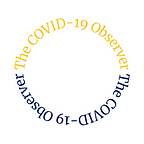Press 1 for Vaccination? Navigating a Challenging System
By Rose Scott
It’s 1 p.m. and I’m sitting in front my computer, my lunch getting colder by the minute. My vision is blurry, a clear sign that I should take a break. Instead, I’m looking for vaccine appointments or filling out waiting list applications for my parents. This was my daily routine from January to April of this year.
With their lack of internet skills, booking their own appointments was hard enough for my parents, but the language barrier was their biggest problem. I’ve been their Korean-American translator for as long as I can remember, filling out paperwork, making hundreds of phone calls, and taking days off work to accompany them to appointments.
Frankly, I’ve had many frustrating days wondering why, after 37 years, could they not learn enough English to function in their chosen country. Having said that, they’ve worked in the U.S. and paid taxes for almost four decades. For all they’ve put into the system, making vaccines more accessible by offering Korean language options doesn’t seem unreasonable. Yet, the only options available on most websites and phone lines are English and Spanish.
Then, there’s the challenge of doing everything online. For my parents, who were born in the 1940s, navigating the internet was like learning another language (and you see how well they did with English).
In short, it was up to me to find the vaccination centers and check each one every day to see if appointments were available. This was during the vaccine shortage, so unless you happened to check their system within the first minute of them posting new appointments, you were flat out of luck.
At some point, the vaccination sites started to offer waiting lists, so I spent considerable time filling out one application after another. I was particularly miffed at the ones that required insurance information. I understand they want to be reimbursed for their services, but this is information they could collect from the patient once they’re at the appointment. Asking elderly people, even those fluent in English, to upload their insurance cards adds unnecessary stress and aggravation. So that’s more time I had to spend going to my parents’ house and uploading the cards to finish the applications.
There was a momentary bright spot when one hospital asked about language preferences, with “Korean” as an option. But my hopes were dashed when the confirmation text and email were both in English. And the spam emails for wellness checks, online records registration, and other unwanted hospital services? You guessed it — all in English.
After 3 months, I finally got them an appointment, but I was on standby in case they had problems at the vaccination site. Even though Bergen County, N.J. has the highest Korean population of any county in the U.S., there were no Korean volunteers or translation options. That meant any question could stump my parents and get them turned away from an appointment that took months to secure.
Thankfully, they got through their appointment both times without any major issues. I’m so relieved they got in during the earlier phase because security is much tighter now. When I went for my first dose last week, you had to show your confirmation text from the day before, just to get in the door. I can’t imagine how my parents would have dealt with this, or how I would have talked them through it, especially if they deleted the text.
So, on the one hand, thank you to the federal and state governing officials for accessibility to several vaccines, which people in poorer nations would kill for. On the other hand, know that the vaccine isn’t so “accessible” for those who struggle with English, but still put in many years of backbreaking labor for the benefit of this country.
I also wonder about the all the other services I’ve helped my parents with over the years, like Medicare, Social Security, and most recently, unemployment benefits. How do people with limited to no English sign up for these things if they have no family or friends to help them? How will they get through the pandemic on their own? In essence, this is about far more than vaccine accessibility. It’s about one’s basic rights, and how accessibility to those rights is contingent on speaking English or Spanish.
Rose Scott is a freelance writer specializing in ghostwritten content, including blogs, long-form reviews, and YouTube scripts. She has been published in the Magdalene Journal and the Equality Newsletter. Her self-published works can be found on her website.
This originally ran in the COVID-19 Wall of Memories on May 19, 2021.
